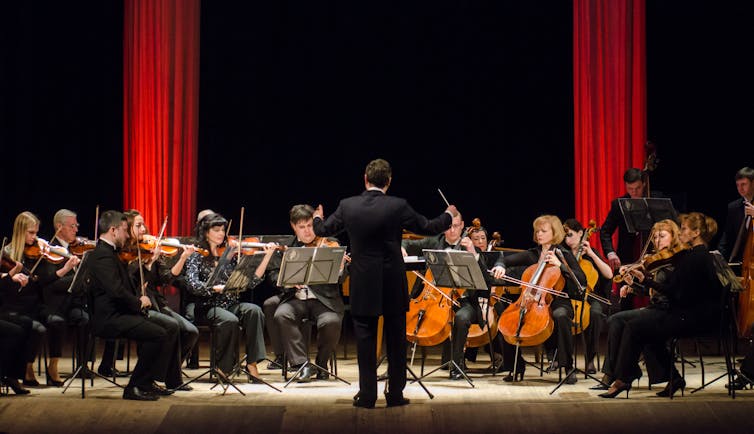Tinnitus: scale of hearing damage for music industry workers revealed

, Research Associate, Hearing Science,
Hearing loss and (ringing, buzzing or whistling noises in the absence of any external sounds) are serious problems for music industry workers. The conditions can affect musical standards, limit employment and damage general wellbeing. Yet music industry workers’ susceptibility to hearing problems is not well understood, as it can take years before the damage becomes severe enough to be detected by conventional tests and many people in the industry .
At the 野狼社区 Centre for Audiology and Deafness, we are trying to get a better understanding of the effects of noise exposure on musicians’ hearing. As part of this project, on hearing difficulties and tinnitus in 23,000 people from the , an online database of medical and lifestyle records of half a million Britons. The most striking finding was that music industry workers were almost twice as likely to report tinnitus compared with people working in the finance industry.
To assess generalised hearing difficulties, we also analysed data from a test of speech recognition in a noisy environment. Difficulty understanding speech in noisy environments is . But the results showed that music industry workers were no more likely to develop difficulties hearing in a noisy environment than people working in the finance industry.
That’s not to say that music industry workers are immune to noise-induced hearing loss. The relatively good hearing in this group was probably because they had developed . This could mean that the hearing-in-noise test (a standardised test that measures sentence recognition in background noise) was easier for them, which could counteract any hearing loss that they have as a result of noise exposure.
Or conversely, hearing loss brought about by , so that their performance is similar to that of finance workers. Our ongoing investigation using sophisticated methods for measuring musicians’ hearing may provide some evidence to support this explanation.
We also found that health and lifestyle had little effect on tinnitus and hearing difficulties. Noise exposure was by far the biggest risk factor for tinnitus for people working in the music industry, including musicians, music directors and production staff for all genres of music.
Hearing protection
The permissible limit for occupational noise in the UK is an . The length of safe noise exposure is reduced by half for every three decibels increase in noise intensity. This equals four hours of daily exposure for 88 decibels of noise, two hours for 91 decibels, and so on. Most amplified concerts exceed 100 decibels, meaning that music industry workers shouldn’t be exposed to this level of noise for more than 15 minutes without proper hearing protection.
The findings from our study, published in Trends in Hearing, confirm the concerns that music industry workers have about the impact of their work on their hearing health. The list of high-profile musicians who reportedly suffer from tinnitus continues to grow, including .
Classical music players are at risk, too. Earlier this year, The Royal Opera House over the life-changing hearing damage caused to a viola player at a single rehearsal of Wagner’s Die Walküre.
While changes to the law have increased hearing protection use and reduced levels of hearing problems in the construction industry, the music industry lags behind. We know from previous research that . So another part of our research is to understand why so few musicians use hearing protection and to devise ways to encourage them to change their behaviour.![]()
This article is republished from under a Creative Commons license. Read the .